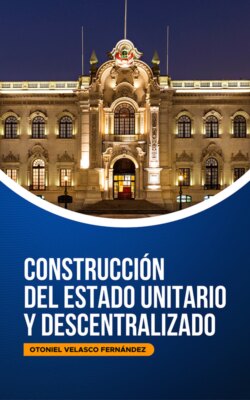Читать книгу Perú: Construcción del Estado Unitario y Descentralizado - Otoniel Velasco Fernández - Страница 4
На сайте Литреса книга снята с продажи.
SUMMARY
ОглавлениеThe construction of the state in Peru is a complex process because of the fractionation of society between majorities and elites, and by the persistent demand to decentralize the administration by perceiving Lima as a center of exploitation of the rest of the country. In this context, the main objective of this investigation is to explain the causes that hinder the construction of the unitary and decentralized State. The methodological approach of research is multidisciplinary with an emphasis on geography, history and politics, and, supported by official statistical information. Revised the respective literature, it is found that efforts to decentralize the country were not primarily successful due to tax restrictions by not being able to finance the public services provision required by the population. On the contrary, the process in the period 2002-17 has been accompanied by sufficient fiscal resources thanks to the boom in minerals that have facilitated that in that period the PBIper capita will grow in real terms to 3.8% per year, monetary poverty decreased from 54.3% to 20.6%, and the participation of Lima- Metropolitana (Province of Lima and Constitutional Province of Callao) in the national VAB in S/. 2007, from 48.4% to 44.1%. On the other hand, there are important weaknesses of the process: a) the widespread corruption in the public and business sector, b) the weakness and corruption of the judicial system, c) the precariousness and obsolescence of the political system, d) the persistent concentration of wealth and income at the richest levels of the population, e) the extreme reliance on tax financing on mineral prices swings, f) not to take advantage of the mining boom of recent years to diversify the economy and g) the political consolidation of the counties making it difficult for two or more of them to come together to form regions. In this context, the following problems are placed on the political agenda: a) Strengthening the fight against corruption, b) Reforming the system of administration of justice, c) Reforming the political system d) Reforming the state apparatus, e) Tax reform, f) Productive diversification, g) Balanced territorial development and h) Regionalization.
